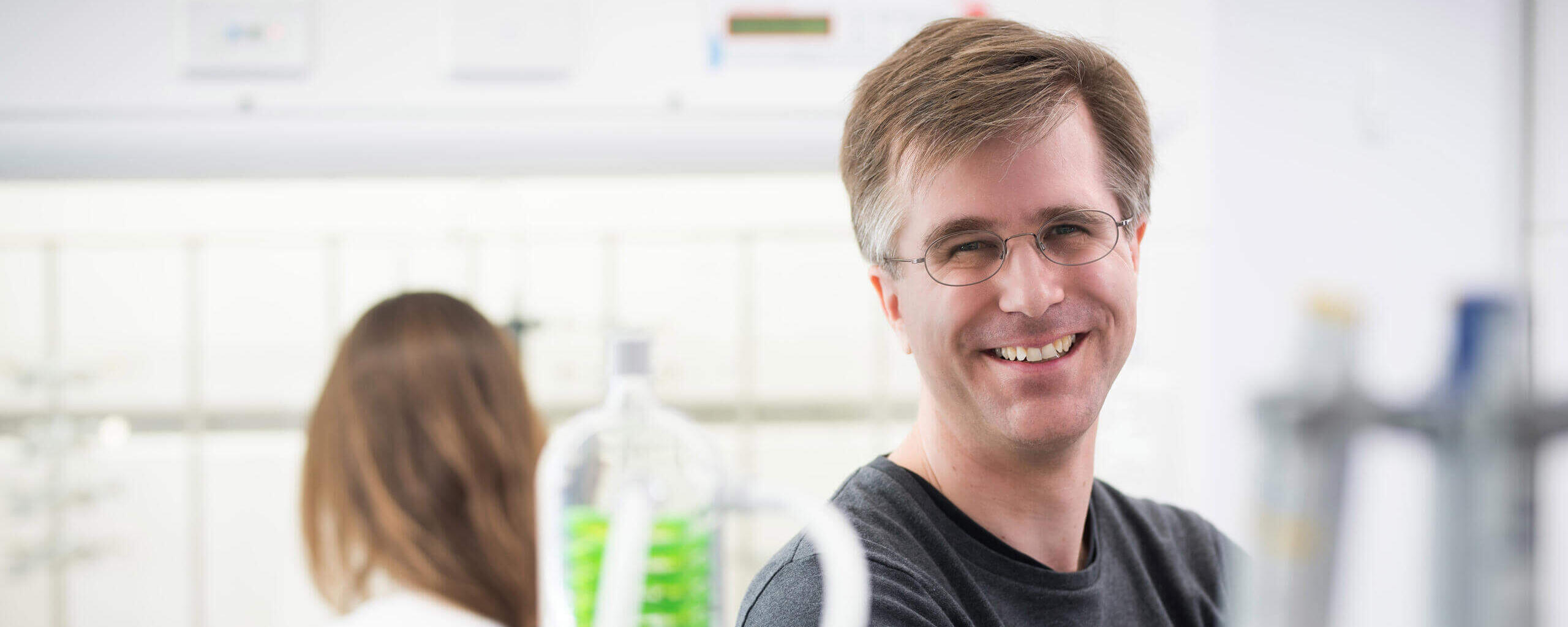
29.06.2020
So findest du den passenden Supervisor für deine Doktorarbeit
Q&A with Professor Christopher Barner-Kowollik, Deputy Vice-Chancellor and Vice-President (Research and Innovation), Queensland University of Technology
After completing his PhD at the University of Göttingen, Professor Barner-Kowollik took up a postdoctoral fellowship at the University of New South Wales in 2000, rising through the ranks to Professorial Fellow and Centre Director, before joining Karlsruhe Institute of Technology (KIT) in 2008 to lead a research group as full Professor. In 2017 he returned to Australia as an Australian Research Council (ARC) Laureate Fellow and Professor of Materials Science at QUT.
Professor Barner-Kowollik was appointed QUT’s Deputy Vice-Chancellor and Vice-President (Research and Innovation) in December 2019. His research vision for QUT is crystallised in 30 research centres that encourage transdisciplinary research collaboration, allowing HDR students to thrive in an intellectually stimulating environment and deliver high quality outcomes in fundamental and applied research that make a difference in the real world.
As a research intensive academic, Professor Barner-Kowollik maintains strong connections with international academic and industry partners and supervises cotutelle and visiting research students. We asked Professor Barner-Kowollik for his advice to prospective PhD students.
GRC: Why would you recommend German/European students to come to Australia to do a PhD?
There are several reasons:
1. Australia and QUT have outstanding research infrastructure, laboratories and facilities.
2. We offer high quality supervision, close and fruitful supervisors-HDR student relationships, and focus on student success and agency over their own projects.
3. The Australian higher education system is well regarded and recognised internationally.
GRC: How important is an international research experience for PhD students?
International research experience is essential for PhD students and highly valued by employers. A PhD internationalises your career and in some fields it is a prerequisite for getting a job at all.
GRC: What do you like about supervising international students?
I like the cultural diversity they bring to a group. It’s instructive to learn from PhD students from other cultures, and it teaches you to work as a team and in culturally diverse settings. Forging effective teams that achieve great outcomes together is a unifying international experience.
GRC: What are your top tips for finding a PhD supervisor?
1. Look for a research-intensive team that does the best work in that field.
2. Check out the supervisor’s academic and research performance and alumni network. Any supervisor who is confident in their research and supervision skills will allow you to independently contact their students for private conversations.
3. Choose a country with a high standard of living – you’re here to study, make a difference, and immerse yourself in another culture, and you want to do that in a safe environment.
GRC: Why would you encourage international students to come to QUT?
QUT strives for a model where all senior academics and executives are research active. You’d be hard pressed to find another university where everyone takes a keen interest in your research. At QUT it would not be unusual for the Vice Chancellor, Executive Deans or myself to engage in conversation with you and be interested in what you are trying to achieve.


